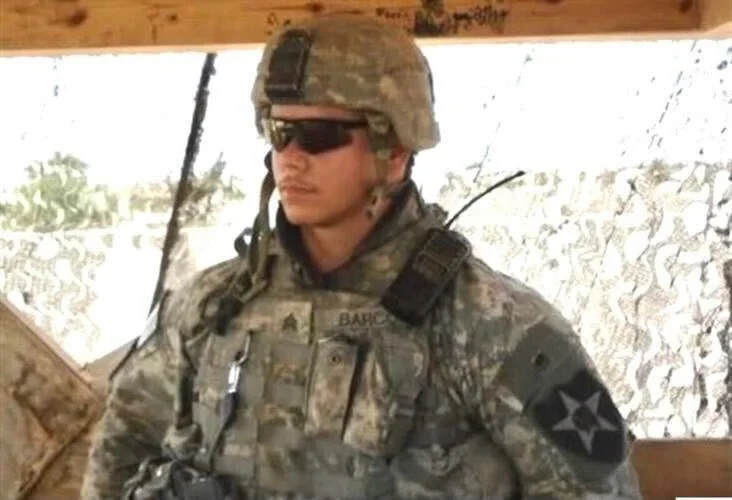A decorated United States Army veteran who served two tours in Iraq has been deported from an immigration detention facility in Arizona, leaving his family and legal team in turmoil over his whereabouts.
Jose Barco, a Venezuelan-born veteran whose family fled Cuba as refugees, was removed from the Florence detention centre at 4am on Friday, according to Arizona state representative Raquel Terán, who spoke to Fox 10 Phoenix. Immigration and Customs Enforcement (ICE) later confirmed that Barco had been deported to Nogales, Mexico.
However, Barco’s family said they had not received confirmation of his arrival. In a statement released on Friday evening, they explained: “We have not received word from Jose or from anyone else with firsthand knowledge that he has actually arrived in Nogales. We only have the official statement from ICE to go on, but no confirmation of Jose’s current location.”
Anna Stout, a volunteer on Barco’s defence team, told Denver 7 that neither his family nor his lawyers were notified in advance of the deportation. “Jose was not able to reach out to his family before any of this initiated,” she said, describing the process as “frustrating”.
The court had previously ordered Barco’s removal to either Venezuela, Cuba or Mexico, but did not specify which country would be chosen. The uncertainty has compounded the distress of his relatives, who remain in the dark about his situation.
Barco’s family history is deeply tied to political upheaval. His father was a dissident in Cuba who spoke out against communism, forcing the family to flee to Venezuela in the 1980s. Four years after Barco’s birth, the family entered the United States under asylum and were later granted lawful permanent resident status.
At the age of 17, Barco enlisted in the US Army. He went on to serve two tours in Iraq, where he was injured by an improvised explosive device. His service earned him a Purple Heart and a Combat Infantry Badge. Despite his military record, Barco’s path to citizenship was never completed. His legal team maintains that he submitted the necessary paperwork during his service, with his former commander attesting to helping him file the application. For reasons that remain unclear, the application was never processed.
Barco’s life took a tragic turn in 2009 when he was convicted of attempted murder after firing a gun at a house party in Colorado Springs. One of the bullets struck a 19-year-old woman in the leg. At the time, Barco was suffering from post-traumatic stress disorder. He was sentenced to 52 years in prison but served 15 years before being released on parole in January this year due to good behaviour.
Upon his release, ICE detained Barco and transferred him to a detention centre in Colorado. In September, an immigration judge denied his appeals for relief, including an application for asylum, and ordered his removal from the United States.
Stout described the final hours before his deportation as “brutal” for his family and supporters. “The fact he is being removed from the country where he was raised and that he fought and bled for is devastating to begin with, but the uncertainty of where he is, not knowing which country they would be deporting him to, and being denied access to him including for his legal team has made a horrific situation so much worse,” she said.
She added that most families facing deportation at least know the destination of their loved ones. In Barco’s case, his family has been kept uninformed at every stage.
Barco’s deportation highlights the complex intersection of military service, immigration status, and criminal justice. His case has drawn attention to the challenges faced by non-citizen veterans, many of whom believed their service would secure their place in the country they defended.
For Barco’s family, the immediate concern remains his safety and location. As of Friday evening, they had yet to hear directly from him, leaving them reliant on official statements that have provided little clarity.
The removal of a decorated veteran who once risked his life for the United States has sparked outrage among his supporters, who argue that his service and sacrifice should have guaranteed him protection from deportation. For now, his family waits anxiously for confirmation of his whereabouts, uncertain of what lies ahead.



